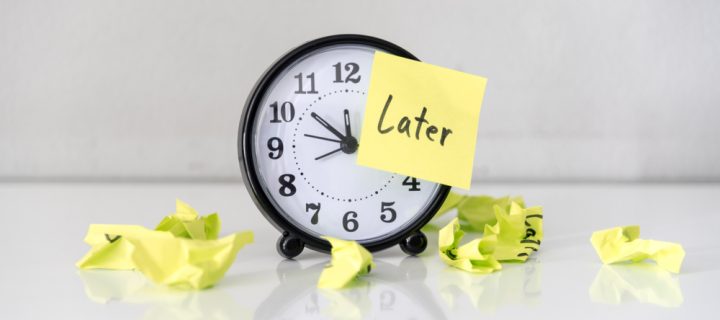Have a long to-do list? Keep your horizons open.
As the saying go, “Time you enjoy wasting is not wasted time”. And then there’s “Never put off till tomorrow what may be done the day after tomorrow just as well!”
While these sayings may be humorous twists on their original counterparts, there’s truth hiding in their ideas. Procrastinating can be fun and many of us find it easy to convince our mind to do it. Of course, it doesn’t come without its costs. Too much procrastination can rather easily lead to lost college degrees, failed tests, lost promotions, broken relationships, and some veritable life and death situations.
Related: How Drinking Tea Can Lower Your Blood Pressure
A study done by Basex, a research firm based in New York City, went so far as to conclude that the “cost of unnecessary interruptions” in the US workforce leads to a loss in innovation and productivity worth about $650 billion.
This figure should probably be taken with a grain of salt, of course. It must be difficult to pinpoint exactly how much time the nation is wasting-and how you define “wasted time”- but no doubt a lot of us could be more efficient in our lives.
So, what’s the secret to getting everything done on time? It’s probably having stricter deadlines, right? Well, a new study says, no, sorry, it’s not. In fact, having no deadlines at all may be the best way to go. What?? Yes. Read on.
The Attraction of Nothingness
Research done at the University of Otago in New Zealand found that if you want to get something done, it may be best to have absolutely no deadline at all. (This may depend on the person and the task needing completion, but stick with me).
If you DO set a deadline, the experts are saying it’s best to make it short.
Here’s what went down. Participants in the study were asked to complete an online survey, part of which involved donating money to charity. Each of the participants was given either one month, one week, or no deadline for getting the task done.
It was found that participants who had a month to respond to the survey had the lowest level of response and those without any deadline responded the most. Both the groups with no deadline at all and that with a short deadline responded the most.
“We interpret this as evidence that specifying a longer deadline, as opposed to a short deadline or no deadline at all, removes the urgency to act, which is often perceived by people when asked to help,” said Professor Stephen Knowles, who led the study. “People therefore put off undertaking the task, and since they are inattentive or forget, postponing it results in lower response rates.”
What About Self-Inflicted Deadlines?
The study didn’t touch upon the idea of making deadlines for yourself when it comes to things like vacuuming the house, or getting the Christmas decorations up, and how that all plays out in the minds of the world’s greatest procrastinators. It could be, however, that we need to set a firm deadline of “This Sunday” or just simply try to get around to it as soon as we can.
Are you feeling stuck and you can’t get started? Check out this list of tips for getting started. Today.
photo credits: ntkris/Shutterstock.com











